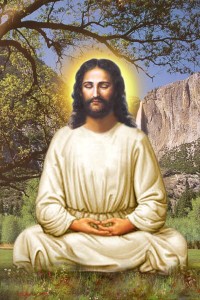
Why, after 2000 years and massive changes in culture, language, and historical circumstance, are people still talking about Jesus? Regardless of your religious views, Jesus’ continuing worldwide influence is historically astonishing. If someone in the year 30 A.D. predicted to you that the most famous man to ever live would be a Jew who was brutally executed as a rebel by Rome, who was a relatively marginal figure in his own time, and who’s movement was rejected by the majority of his own religion, you would have assumed that he/she was crazy. At the end of the day, history is fundamentally unpredictable, and the human intellect will always fail to grasp the inscrutable ways of Fate.
In any case, why are people still talking about Jesus? For me, this fascination can be partially explained by the cryptic ways Jesus spoke about God and about himself that often make him seem like an unknowable enigma to people who study his life. Unlike the historical Buddha, who used precise technical language to describe his subtle mystical experiences (If Eskimos have 100 words for snow, Vedic religions have 1,000 words for meditation experiences), Jesus used simple metaphors that were profound, but that can be interpreted in countless ways as a result of their fundamental imprecision. This fact has made Christianity almost endlessly malleable, producing hundreds of conflicting denominations which all use the same texts to justify their beliefs.
For instance, one of Jesus’ central teachings is his almost constant emphasis on “The Kingdom of God.” What did Jesus mean by this? Many evangelical sects teach that Jesus was referring to a realm in the afterlife that only his devotees will be admitted to; more socially conscious preachers have taught that the Kingdom of God is a movement that will create an era of socioeconomic equality on the earth; more mystical interpretations argue that the Kingdom of God is a state of spiritual illumination similar to the Buddha’s Nirvana.
